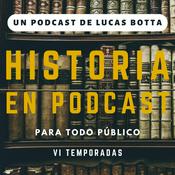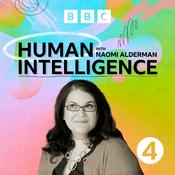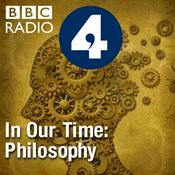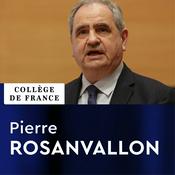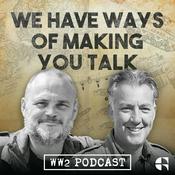90 épisodes
- Often seen as the gold standard for societal resilience, Finland has many admirers. The Secretary General of its Security Committee, Petteri Korvala, describes Finland's approach.
Many nations are exploring how to build societal resilience as part of a comprehensive approach to security. The Scandinavian countries are often seen as exemplars of best practice, with Finland arguably leading the pack. But delivering resilience through comprehensive security requires trust across all elements of society and a cultural shift as much as it needs the right structures and processes.
In this episode, we hear from the Secretary General of Finland's Security Committee, Petteri Korvala, about how their comprehensive security system works.
Petteri Korvala has over 30 years of experience in Finland's defence forces and internationally, including in the Ministry of Defence and in Finland's Permanent Representation to the European Union, as well as having served as a liaison officer in United States European Command.
Further Reading:
Finnish Government, Security Strategy for Society: Government Resolution, 2025:3, available at https://julkaisut.valtioneuvosto.fi/items/0126122a-1e8a-4ffa-9868-6286292efc01
Vesa Valtonen & Minna Branders, 'Tracing the Finnish Comprehensive Security Model', in Sebastian Larsson & Mark Rhinard (eds.), Nordic Societal Security, Routledge, 2020, pp.91-108. Available at: https://www.taylorfrancis.com/chapters/oa-edit/10.4324/9781003045533-7/tracing-finnish-comprehensive-security-model-vesa-valtonen-minna-branders.
Ari-Elmeri Hyvönen & Tapio Juntunen, 'From "spiritual defence" to robust resilience in the Finnish comprehensive security model', in Sebastian Larsson & Mark Rhinard (eds.), Nordic Societal Security Routledge, 2020, pp.154–178.
Tom Woolmore, The Porcupine and the Hedgehog: The Influence of Finland's Comprehensive Security Model on the British Whole-of-Society Approach, King's College London Master's Dissertation, 2025, available at: https://turvallisuuskomitea.fi/wp-content/uploads/2025/09/MA-Thesis-Thomas-Woolmore.pdf
Andrew Sharples (London School of Economics and Political Science): From Bowling Alone to Fighting Together: Social Capital and Whole-of-Society Defence. - Britain was not ready for the First World War but some key, if embryonic, plans and capabilities proved vital. Sir Hew Strachan discusses the lessons for today.
With concerns rising about how ready Western nations are for the risk of war in Europe, we discuss the lessons from Britain's preparation for The Great War. And while preparation is important, not all actions to prepare are equally important. In this case, Britain was not fully prepared but had taken some initial steps that were important in allowing the country to accelerate towards preparedness.
The crucial elements concerned the ability to engage society, coordinate across government and ensure a robust industrial base that supported the armed force that drew on the talent of regular and volunteer forces. As a result, Britain was better (although not perfectly) prepared for the Second World War. And large parts of Europe seem further away from readiness now, so the lessons are vitally important.
Joining us to discuss these lessons is Professor Sir Hew Strachan from the University of St Andrews. Described by Jonathan Boff as 'the most influential British historian of the First World War of his generation', Professor Strachan has published widely on the First World War and is a regular advisor to the British Government and Ministry of Defence, particularly in relation to reserve forces and veterans. - Professor Michael Epkenhans describes how Otto von Bismarck's adroit use of war, realpolitik and the harnessing all levers of state power unified the German nation.
Otto von Bismarck, Prussian Chancellor and – after 1871 – the leading political figure of the Second German Empire after the Kaiser, hated to be bullied but managed to manipulate and bully all around him into following his complex strategic plan. This involved not only keeping German democrats at bay but also Denmark, Austria, and France. Tricking Denmark and France into breaking conventions and declaring war on Prussia and its allies respectively, he got the other German states to close ranks and back the Prussian claim for leadership in a newly united German State.
By putting Prussia on the defensive, the other European great powers – the United Kingdom and Russia – did not intervene, even though the emergent German superstate changed the balance of powers in Europe. Stopping short of aiming for overseas territories, taking on the role of the honest broker of the quarrels among others, Bismarck avoided pushing Britain and Russia over the brink into coalescing against Germany – which his immoderate successors did not.
We are joined by Michael Epkenhans, Beatrice Heuser's successor as Director of Research at the Bundeswehr's Military History Research Office, and specialist on 19th century German and Prussian history. - Innovation has long been a Western strategy, but how can it be made effective against an industrially and economically strong China? Dame Fiona Murray explains.
A defining feature of the West's Cold War approach to the Soviet Union was leveraging its technological and economic advantages, including through 'offset strategies'. While defence innovation remains a pillar of Western security, its focus has shifted toward dual-use technologies, reflecting a broader move of the locus of innovation from states to private industry.
However, just as earlier episodes in Season 5 explored (Episodes 10 and 11 regarding US industrial mobilisation during the Second World War, and Jean Monnet's plans for European post-war cooperation), success requires many actors coming together to create a resilient ecosystem. Achieving this demands alignment by all parties.
Professor Dame Fiona Murray is the Chair of the NATO Innovation Fund and William Porter (1967) Professor of Entrepreneurship at the Massachusetts Institute of Technology. She advises the UK Government and sits on the European Innovation Council Joint Expert Group. Her work is published widely in Science, Nature, American Journal of Sociology, Organisation Science and the Journal of Economic Behaviour and Organisation. Her most recent book Accelerating Innovation: Competitive Advantage through Ecosystem Engagement, (MIT Press, 2025) is with Phil Budden.
Further Reading
Phil Budden and Fiona Murray, Accelerating Innovation: Competitive Advantage through Ecosystem Engagement, MIT Press, 2025.
Edlyn V. Levine and Fiona Murray, How the US and its allies can rebuild economic security, in MIT Technology Review, 30 July 2024.
Stefan Raff, Fiona E. Murray, and Martin Murmann, Why You Should Tap Innovation at Deep-Tech Startups, in MIT Sloan Management Review, Fall 2024.
Gene Keselman and Fiona Murray, Dual-use is a Strategy, Not a Category (Nor a Trap), War on the Rocks, 2 January 2025. - The National Army Museum's Justin Maciejewski reveals how General Bagnall's far-reaching reforms transformed the British Army for war against the USSR.
By the 1980s, General (later Field Marshal) Sir Nigel Bagnall GCB CVO MC and bar (1927-2002) felt that British Army was ill-prepared for the fight against the Soviets. He pinpointed shortcomings such as the lack of conventional mass, the right doctrine and a personnel skills gap. Moreover, British plans did not fit with the allied armies on either flank.
Bagnall sought to transform the Army and integrate it within a broader NATO approach involving changing nuclear and conventional postures, most notably the Air-Land Battle.
Commissioned as an infantry officer, Bagnall was schooled in counter-insurgency warfare in Palestine, Malaya, Cyprus and Indonesia-Malaysia before becoming an armour commander in West Germany. As Chief of the General Staff, he steered many of the reforms he had initiated when commanding the British Army of the Rhine, changing the face of the Army and leaving it better prepared for war in Europe. According to Justin Maciejewski, the reforms made Bagnall the most consequential officer since the Second World War.
Justin Maciejewski DSO MBE spent 27 years in the British Army before becoming a management consultant for McKinsey and then moving to the National Army Museum in London. He draws on his experience serving in the Army through the Bagnall reforms, and his time as a consultant overseeing commercial transformation programmes.
Further Reading
Justin Maciejewski, How the British Army's Operations Went Agile, McKinsey Quarterly, October 2019.
Alexander Alderson, Influence, the Indirect Approach and Manoeuvre, RUSI Journal Vol.157:1, 2012, pp. 36-43.
Ben Barry, Rise and Fall of the British Army 1975-2025, Osprey, 2025.
Army, Army Doctrine Publication (ADP) 01, Operations, 1994.
Beatrice Heuser: NATO, Britain, France and the FRG: Nuclear Strategies and Forces for Europe, 1949-2000 (London: Macmillan, 1997)
Plus de podcasts Histoire
Podcasts tendance de Histoire
À propos de Talking Strategy
Our thinking about defence and security is shaped by ideas. What we see depends on our vantage point and the lenses we apply to the world. Governments, military and business leaders are seeking to maximise the value they gain from scarce resources by becoming more 'strategic'. Standing on the shoulders of the giants of strategy from the past helps us see further and more clearly into the future. This series is aimed at those looking to learn more about strategy and how to become more strategic – leaders, practitioners and scholars.
This podcast series, co-chaired by Professor Beatrice Heuser and Paul O'Neill, examines the ideas of important thinkers from around the world and across the ages. The ideas, where they came from and what shaped those whose ideas shape us now. By exploring the concepts in which we and our adversaries think today, the episodes will shine a light on how we best prepare for tomorrow.
The views or statements expressed by guests are their own and their appearance on the podcast does not imply an endorsement of them or any entity they represent. Views and opinions expressed by RUSI employees are those of the employees and do not necessarily reflect the view of RUSI.
Site web du podcastÉcoutez Talking Strategy, Quand l’histoire fait dates ou d'autres podcasts du monde entier - avec l'app de radio.fr
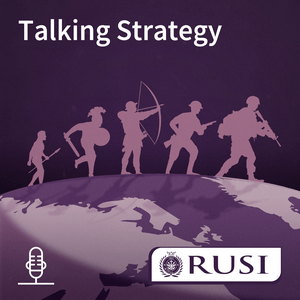
Obtenez l’app radio.fr gratuite
- Ajout de radios et podcasts en favoris
- Diffusion via Wi-Fi ou Bluetooth
- Carplay & Android Auto compatibles
- Et encore plus de fonctionnalités
Obtenez l’app radio.fr gratuite
- Ajout de radios et podcasts en favoris
- Diffusion via Wi-Fi ou Bluetooth
- Carplay & Android Auto compatibles
- Et encore plus de fonctionnalités


Talking Strategy
Scannez le code,
Téléchargez l’app,
Écoutez.
Téléchargez l’app,
Écoutez.












